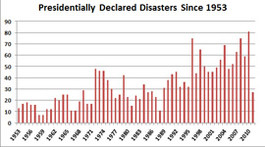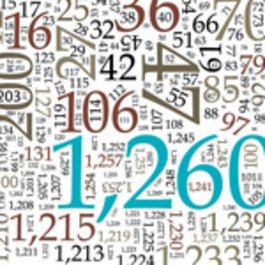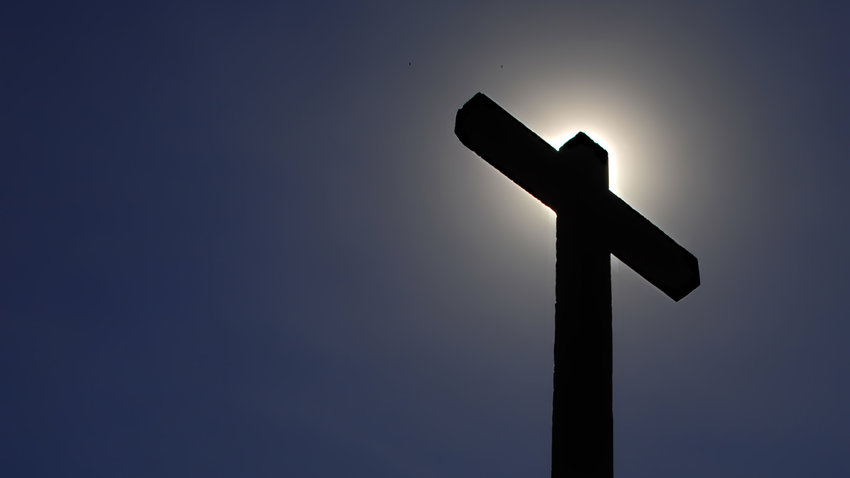 “Trim the Fat, Roast the PIIGS,” yelled one headline. “Is Europe Going to the PIIGS?” chided another. For those who aren’t following the European Union’s debt crisis, PIIGS is an acronym for Portugal, Ireland, Italy, Greece and Spain—five European nations on the brink of bankruptcy. In fact, some are estimating that Greece’s bankruptcy is now 98% certain. And the drama this week has centered on Chancellor Merkel of Germany and French president Sarkozy’s huddle with Greek prime minister Papandreou. Will the economic powerhouses of Europe be able to pull the rabbit out of the hat, or will Greece’s financial collapse drag Europe into its swirling vortex? (To insure $10 million of Greek debt now costs $5.8 million! http://seekingalpha.com/article/293251-eurozone-trim-the-fat-roast-the-piigs) Perhaps Nebuchadnezzar’s ancient dream (Daniel 2) about a towering metallic image deserves another look. Are its iron and clay toes—the nations that grew out of the collapse of the Roman Empire—a prophetic warning that even an economic union like the European Union is doomed to fail? “Just as you saw the iron mixed with baked clay, so the people will be a mixture and not remain united, any more than iron mixes with clay” (v 43, emphasis supplied). And how will the United States—itself teetering on the economic edge—weather this hemorrhaging crisis? Thinkers the world over are warily endeavoring to decipher these unusual times. The gyrating global stock markets are simply empirical indicators of mounting apprehension and perplexity. Nobody knows. Emphasis on nobody. Thus the future of earth. What a made-to-fit moment this is for the “Prophecies Decoded” series that begins on September 30—seen coast to coast on satellite, and “live” here at Andrews University. And wouldn’t you know it—the opening lecture comes straight out of Daniel 2’s provocative prophecy. My friend, Dr. Ron Couzet, is the presenter. And he is as trustworthy and credible a voice I know to speak to the urgency of these times. That’s why I’d like to earnestly invite you to take advantage of this prophetic lecture series, by inviting friends, colleagues, neighbors you know who would benefit from a careful, biblical examination of the prophecies that speak to our age. We’ll be offering a big-screen live link to Nashville, Tennessee, where Ron Clouzet will be speaking—Friday evening, 7:20, September 30—that’s when it begins. Pick up a handful of the color brochures at Pioneer to give your friends. Have them go online to www.propheciesdecoded.com and watch the series trailer for a themselves. Call them up and offer them a ride. The point is—when you’re living in the toes of earth’s history—there is something greater than PIIGS to motivate your life. And that something is the Someone who is coming soon. So pass the word, will you? The PIIGS, Europe, the U.S., you and I—we’re all living on the edge. It’s time to believe. “‘The great God has shown the king what will take place in the future. The dream is true and its interpretation is trustworthy’” (Daniel 2:45).
“Trim the Fat, Roast the PIIGS,” yelled one headline. “Is Europe Going to the PIIGS?” chided another. For those who aren’t following the European Union’s debt crisis, PIIGS is an acronym for Portugal, Ireland, Italy, Greece and Spain—five European nations on the brink of bankruptcy. In fact, some are estimating that Greece’s bankruptcy is now 98% certain. And the drama this week has centered on Chancellor Merkel of Germany and French president Sarkozy’s huddle with Greek prime minister Papandreou. Will the economic powerhouses of Europe be able to pull the rabbit out of the hat, or will Greece’s financial collapse drag Europe into its swirling vortex? (To insure $10 million of Greek debt now costs $5.8 million! http://seekingalpha.com/article/293251-eurozone-trim-the-fat-roast-the-piigs) Perhaps Nebuchadnezzar’s ancient dream (Daniel 2) about a towering metallic image deserves another look. Are its iron and clay toes—the nations that grew out of the collapse of the Roman Empire—a prophetic warning that even an economic union like the European Union is doomed to fail? “Just as you saw the iron mixed with baked clay, so the people will be a mixture and not remain united, any more than iron mixes with clay” (v 43, emphasis supplied). And how will the United States—itself teetering on the economic edge—weather this hemorrhaging crisis? Thinkers the world over are warily endeavoring to decipher these unusual times. The gyrating global stock markets are simply empirical indicators of mounting apprehension and perplexity. Nobody knows. Emphasis on nobody. Thus the future of earth. What a made-to-fit moment this is for the “Prophecies Decoded” series that begins on September 30—seen coast to coast on satellite, and “live” here at Andrews University. And wouldn’t you know it—the opening lecture comes straight out of Daniel 2’s provocative prophecy. My friend, Dr. Ron Couzet, is the presenter. And he is as trustworthy and credible a voice I know to speak to the urgency of these times. That’s why I’d like to earnestly invite you to take advantage of this prophetic lecture series, by inviting friends, colleagues, neighbors you know who would benefit from a careful, biblical examination of the prophecies that speak to our age. We’ll be offering a big-screen live link to Nashville, Tennessee, where Ron Clouzet will be speaking—Friday evening, 7:20, September 30—that’s when it begins. Pick up a handful of the color brochures at Pioneer to give your friends. Have them go online to www.propheciesdecoded.com and watch the series trailer for a themselves. Call them up and offer them a ride. The point is—when you’re living in the toes of earth’s history—there is something greater than PIIGS to motivate your life. And that something is the Someone who is coming soon. So pass the word, will you? The PIIGS, Europe, the U.S., you and I—we’re all living on the edge. It’s time to believe. “‘The great God has shown the king what will take place in the future. The dream is true and its interpretation is trustworthy’” (Daniel 2:45).
Pastors' Blog
By Pioneer Pastors


 This Tuesday I sat with rapt attention, along with the rest of the student body (you could have heard a pin drop), as Stanley Praimnath recounted his harrowing survival on the morning of September 11, 2001. An associate vice-president with Fuji Bank (which occupied floors 78 through 81 in Twin Towers #2), Praimnath was on the phone in his 81st floor office, when he happened to glance across the space and out a far window. For a split second, he watched a United Airlines jet (“I saw the giant U on the tail of the plane”) hurling at eye level (“I could hear the engines accelerating”) directly toward his office space. In that slow motion instant, Praimnath threw the phone, instinctively diving under a nearby desk at the moment of impact. His world exploded. Choking jet fuel, thick dust, darkness, the floor above him collapsed onto the only desk that withstood its weight—the one he was under. Praimnath’s horrendous ordeal to survive had begun. On this tenth anniversary as the nation pauses to remember, what is it we will collectively recall? We remember the 2,976 victims of this four-site tragedy—the innocent victims in the air and on the ground, the heroic first responders in New York City. We also remember the 3,000 people who, like Stanley Praimnath, survived the infernos but who bear the scars and still relive the nightmare a decade later. We remember all the families who have had to go on surviving without the one they loved about their table. We remember people. We remember the 236 foreigners, citizens of other lands, who perished on September 11. And while we know little about the perpetrators of this crime against humanity, we can only imagine the pain of those families, as well. The truth is September 11, 2001, broke not only ten thousand hearts, but deeply wounded the heart of the Father of humanity. “In all their affliction, He [is] afflicted” (Isaiah 63:9). Ideologies, theologies, geo-politics aside, the greatest grief over the human plight still breaks the strongest heart of all, doesn’t it? Christian, Muslim, Jew, pagan—the labels we conveniently affix are in some visceral sense immaterial to him, are they not? Ten years later the statistics keep exponentially mounting. This year relief aid workers estimate that one million men, women and children will die from starvation—in Somalia alone! Nationality and religion and ideology pale before so immense a human loss, so far away from our evening dinner tables. But if not even “two sparrows . . . will fall to the ground outside your Father’s care” (Matthew 10:29), to quote the Master, then how much more do the 2,976 of September 11 and the one million of 2011 matter to him? This weekend it is right that we remember. But let us not take refuge in the remembering. Let us instead transform our memories into proactive, specific responses to the immense human needs all around us. Helping one child in Benton Harbor’s inner city—by joining the street ministry teams at 3 PM today, or by marking your gift in an offering envelope “Benton Harbor”—can turn remembrance into life-changing assistance. Somalia? You’ll never go there. But Benton Harbor—we can make a difference right now here at home. Then their deaths were not in vain. Then September 11’s legacy can yet be one of healing and hope. Stanley Praimnath survived because a stranger with a flashlight came seeking. How many other survivors could there be, if you and I would do the same?
This Tuesday I sat with rapt attention, along with the rest of the student body (you could have heard a pin drop), as Stanley Praimnath recounted his harrowing survival on the morning of September 11, 2001. An associate vice-president with Fuji Bank (which occupied floors 78 through 81 in Twin Towers #2), Praimnath was on the phone in his 81st floor office, when he happened to glance across the space and out a far window. For a split second, he watched a United Airlines jet (“I saw the giant U on the tail of the plane”) hurling at eye level (“I could hear the engines accelerating”) directly toward his office space. In that slow motion instant, Praimnath threw the phone, instinctively diving under a nearby desk at the moment of impact. His world exploded. Choking jet fuel, thick dust, darkness, the floor above him collapsed onto the only desk that withstood its weight—the one he was under. Praimnath’s horrendous ordeal to survive had begun. On this tenth anniversary as the nation pauses to remember, what is it we will collectively recall? We remember the 2,976 victims of this four-site tragedy—the innocent victims in the air and on the ground, the heroic first responders in New York City. We also remember the 3,000 people who, like Stanley Praimnath, survived the infernos but who bear the scars and still relive the nightmare a decade later. We remember all the families who have had to go on surviving without the one they loved about their table. We remember people. We remember the 236 foreigners, citizens of other lands, who perished on September 11. And while we know little about the perpetrators of this crime against humanity, we can only imagine the pain of those families, as well. The truth is September 11, 2001, broke not only ten thousand hearts, but deeply wounded the heart of the Father of humanity. “In all their affliction, He [is] afflicted” (Isaiah 63:9). Ideologies, theologies, geo-politics aside, the greatest grief over the human plight still breaks the strongest heart of all, doesn’t it? Christian, Muslim, Jew, pagan—the labels we conveniently affix are in some visceral sense immaterial to him, are they not? Ten years later the statistics keep exponentially mounting. This year relief aid workers estimate that one million men, women and children will die from starvation—in Somalia alone! Nationality and religion and ideology pale before so immense a human loss, so far away from our evening dinner tables. But if not even “two sparrows . . . will fall to the ground outside your Father’s care” (Matthew 10:29), to quote the Master, then how much more do the 2,976 of September 11 and the one million of 2011 matter to him? This weekend it is right that we remember. But let us not take refuge in the remembering. Let us instead transform our memories into proactive, specific responses to the immense human needs all around us. Helping one child in Benton Harbor’s inner city—by joining the street ministry teams at 3 PM today, or by marking your gift in an offering envelope “Benton Harbor”—can turn remembrance into life-changing assistance. Somalia? You’ll never go there. But Benton Harbor—we can make a difference right now here at home. Then their deaths were not in vain. Then September 11’s legacy can yet be one of healing and hope. Stanley Praimnath survived because a stranger with a flashlight came seeking. How many other survivors could there be, if you and I would do the same?

 The old American folk song sings it well, doesn’t it? Irene goodnight, Irene goodnight Goodnight Irene, goodnight Irene I’ll see you in my dreams You cause me to weep, you cause me to mourn You cause me to leave my home But the very last words I heard her say Was “Please sing me one more song” Irene goodnight, Irene goodnight Goodnight Irene, goodnight Irene I’ll see you in my dreams But nobody up and down the eastern seaboard is in any mood to sing these words, as the massive clean-up for Hurricane Irene’s devastation continues. “You cause me to weep, you cause me to mourn, you cause me to leave my home” pretty much sums it up in the aftermath of this storm—remembered more for her rains and floods rather than for her winds. Over forty dead, property damages predicted to exceed $7 billion, Irene now ranks in the top ten most expensive disasters in this country’s history. But what caught my eye this week was the announcement that this marks the sixty-sixth disaster that FEMA (the Federal Emergency Management Agency) has faced in 2011. And the monies are running low, with only $900 million left in FEMA’s disaster aid funding. So here’s a question for your own brooding: Could an escalation in natural disasters drain our national economy? I.e., is it possible that a spike in costly disasters could someday (I’m not suggesting today) actually deplete government resources, drain private reserves and diminish our collective ability to respond to nature’s emergencies? How many more hurricanes or droughts (Texas was praying for the rain of that hurricane to veer westward to relieve their own withering disaster) or earthquakes would it take to “break the bank” in the United States? (Look at Japan with a single earthquake and tsunami this year, as she still struggles to gain her economic footing.) The US News and World Report website reported this week: “To date, according to the Federal Emergency Management Agency’s website, President Obama has declared 24 emergencies and 66 major disaster declarations in 2011. So, also including those for fire management assistance, President Obama has made 181 FEMA declarations this year. That figure easily eclipses the previous record of 157 overall annual declarations set by Bill Clinton in 1996.” And the year isn’t even over. (http://www.usnews.com/news/articles/2011/08/30/12-states-with-the-most-disaster-declarations-in-2011?PageNr=1) “Good night, Irene.” But could it be “Good night, America” one of these days? Two thousand years ago, Christ made this terse prediction of global conditions that would occupy the headlines on the eve of his return: “On the earth, nations will be in anguish and perplexity at the roaring and tossing of the sea. Men will faint from terror, apprehensive of what is coming on the world, for the heavenly bodies will be shaken. At that time they will see the Son of Man coming in a cloud with power and great glory” (Luke 21:25-27). So shall we panic? Not at all. But we really do need to quit living life as though it were “business as usual.” The “usual” has long gone, and the “unusual” is now our new “usual.” So what if we lived with the quiet confidence Christ’s next sentence offers: “When these things begin to take place, stand up and lift up your heads, because your redemption is drawing near” (v 28). Is Jesus suggesting a quiet confidence in his prediction? No, but implicit in his command is an abiding confidence in the One who is to return. That’s why our new series, “The Last Word: The Fourth Gospel for a Final Generation,” is front and center this new season—because reliving the story of Jesus can revive our faith in Jesus. Not faith in the headlines of earth’s “fourth watch”—but rather faith in the One who has promised that after the “Good night” will come the very “Good morning.” No wonder we can live the “fourth watch” with our heads up!
The old American folk song sings it well, doesn’t it? Irene goodnight, Irene goodnight Goodnight Irene, goodnight Irene I’ll see you in my dreams You cause me to weep, you cause me to mourn You cause me to leave my home But the very last words I heard her say Was “Please sing me one more song” Irene goodnight, Irene goodnight Goodnight Irene, goodnight Irene I’ll see you in my dreams But nobody up and down the eastern seaboard is in any mood to sing these words, as the massive clean-up for Hurricane Irene’s devastation continues. “You cause me to weep, you cause me to mourn, you cause me to leave my home” pretty much sums it up in the aftermath of this storm—remembered more for her rains and floods rather than for her winds. Over forty dead, property damages predicted to exceed $7 billion, Irene now ranks in the top ten most expensive disasters in this country’s history. But what caught my eye this week was the announcement that this marks the sixty-sixth disaster that FEMA (the Federal Emergency Management Agency) has faced in 2011. And the monies are running low, with only $900 million left in FEMA’s disaster aid funding. So here’s a question for your own brooding: Could an escalation in natural disasters drain our national economy? I.e., is it possible that a spike in costly disasters could someday (I’m not suggesting today) actually deplete government resources, drain private reserves and diminish our collective ability to respond to nature’s emergencies? How many more hurricanes or droughts (Texas was praying for the rain of that hurricane to veer westward to relieve their own withering disaster) or earthquakes would it take to “break the bank” in the United States? (Look at Japan with a single earthquake and tsunami this year, as she still struggles to gain her economic footing.) The US News and World Report website reported this week: “To date, according to the Federal Emergency Management Agency’s website, President Obama has declared 24 emergencies and 66 major disaster declarations in 2011. So, also including those for fire management assistance, President Obama has made 181 FEMA declarations this year. That figure easily eclipses the previous record of 157 overall annual declarations set by Bill Clinton in 1996.” And the year isn’t even over. (http://www.usnews.com/news/articles/2011/08/30/12-states-with-the-most-disaster-declarations-in-2011?PageNr=1) “Good night, Irene.” But could it be “Good night, America” one of these days? Two thousand years ago, Christ made this terse prediction of global conditions that would occupy the headlines on the eve of his return: “On the earth, nations will be in anguish and perplexity at the roaring and tossing of the sea. Men will faint from terror, apprehensive of what is coming on the world, for the heavenly bodies will be shaken. At that time they will see the Son of Man coming in a cloud with power and great glory” (Luke 21:25-27). So shall we panic? Not at all. But we really do need to quit living life as though it were “business as usual.” The “usual” has long gone, and the “unusual” is now our new “usual.” So what if we lived with the quiet confidence Christ’s next sentence offers: “When these things begin to take place, stand up and lift up your heads, because your redemption is drawing near” (v 28). Is Jesus suggesting a quiet confidence in his prediction? No, but implicit in his command is an abiding confidence in the One who is to return. That’s why our new series, “The Last Word: The Fourth Gospel for a Final Generation,” is front and center this new season—because reliving the story of Jesus can revive our faith in Jesus. Not faith in the headlines of earth’s “fourth watch”—but rather faith in the One who has promised that after the “Good night” will come the very “Good morning.” No wonder we can live the “fourth watch” with our heads up!

 Facebookers on the west coast have had fun, good-naturedly chiding their east coast cousins. “A 5.8 magnitude earthquake—and you’re hyperventilating?” After all, the 7.0+ magnitude quakes Californians have lived with for decades do make the temblor in Virginia this week seem a bit “wimpy.” But a quake is a quake. And the nervous chatter of “survivors” in the nation’s capital made for headline grist. Not to be outdone, The South Bend Tribune carried the testimonies of those in Michiana who felt the earth move (ever so slightly) “way out here.” All the while Hurricane Irene is barreling up the Atlantic with the usual late summer gusto of another tropical storm turned destructive. (Remember school beginning six years ago on the heels of Hurricane Katrina?) And the folks in Texas? They were praying hard that the storm would head their way, since their state is now gripped in the most ravaging drought in its long history. Ah, the weather and quakes—Mother Nature keeps changing the subject, doesn’t she? And as for the Arab Spring—nobody’s sure now where that “spring” is headed. Egypt struggles with her new lease on democracy. Syria’s lethal crackdown only worsens. Yemen is off the radar screen. Libya now is front and center—and nobody knows where Gadhafi might turn up or how that awkward revolution might turn out. As once again Israel and the Palestinians go at it—rocket for rocket, tit for tat. Some spring that was! Anybody want to discuss the global economy—Europe, the U.S., China? I didn’t think so. Because, truth be told, nobody knows. Period. Listen, do you suppose the entire planet—read, the human race—feels these mounting seismic tremblings? Could it be that all of us—God believers or not—with awkward uncertainty and mounting dis-ease stare into the unknown ahead of us? In 1921 W. J. Yeats composed his poem, “The Second Coming”: Things fall apart; the centre cannot hold; Mere anarchy is loosed upon the world, The blood-dimmed tide is loosed, and everywhere The ceremony of innocence is drowned; The best lack all conviction, while the worst Are full of passionate intensity. “Full of passionate intensity”—the moniker of “this generation.” Then perhaps we all—God believers or not—could profit from a reflective brooding through an ancient gospel. “The Last Word: The Fourth Gospel for a Final Generation.” Because maybe the “Peace I leave with you” promise tucked near the end of the Jesus narrative (John 14:27) is earth’s most sought gift of all. And so the journey commences right here, right now. Never mind the earth beneath your feet—stay on course until the Gift is in your heart.
Facebookers on the west coast have had fun, good-naturedly chiding their east coast cousins. “A 5.8 magnitude earthquake—and you’re hyperventilating?” After all, the 7.0+ magnitude quakes Californians have lived with for decades do make the temblor in Virginia this week seem a bit “wimpy.” But a quake is a quake. And the nervous chatter of “survivors” in the nation’s capital made for headline grist. Not to be outdone, The South Bend Tribune carried the testimonies of those in Michiana who felt the earth move (ever so slightly) “way out here.” All the while Hurricane Irene is barreling up the Atlantic with the usual late summer gusto of another tropical storm turned destructive. (Remember school beginning six years ago on the heels of Hurricane Katrina?) And the folks in Texas? They were praying hard that the storm would head their way, since their state is now gripped in the most ravaging drought in its long history. Ah, the weather and quakes—Mother Nature keeps changing the subject, doesn’t she? And as for the Arab Spring—nobody’s sure now where that “spring” is headed. Egypt struggles with her new lease on democracy. Syria’s lethal crackdown only worsens. Yemen is off the radar screen. Libya now is front and center—and nobody knows where Gadhafi might turn up or how that awkward revolution might turn out. As once again Israel and the Palestinians go at it—rocket for rocket, tit for tat. Some spring that was! Anybody want to discuss the global economy—Europe, the U.S., China? I didn’t think so. Because, truth be told, nobody knows. Period. Listen, do you suppose the entire planet—read, the human race—feels these mounting seismic tremblings? Could it be that all of us—God believers or not—with awkward uncertainty and mounting dis-ease stare into the unknown ahead of us? In 1921 W. J. Yeats composed his poem, “The Second Coming”: Things fall apart; the centre cannot hold; Mere anarchy is loosed upon the world, The blood-dimmed tide is loosed, and everywhere The ceremony of innocence is drowned; The best lack all conviction, while the worst Are full of passionate intensity. “Full of passionate intensity”—the moniker of “this generation.” Then perhaps we all—God believers or not—could profit from a reflective brooding through an ancient gospel. “The Last Word: The Fourth Gospel for a Final Generation.” Because maybe the “Peace I leave with you” promise tucked near the end of the Jesus narrative (John 14:27) is earth’s most sought gift of all. And so the journey commences right here, right now. Never mind the earth beneath your feet—stay on course until the Gift is in your heart.
Just as the ubiquitous yellow school busses are revving up to begin another school year across the nation comes word about President Obama’s brand new $1.1 million mystery bus. Perhaps you’ve seen it on his road trip this week through some of our Midwest neighbor states—that new Greyhound-size black bus, with blacked out windows and red and blue police lights. Few details of the bus have been released, although the Christian Science Monitor website has conjectured what the imposing bus might be like. If it shares similarities with the familiar black presidential Cadillac limousine, nicknamed “The Beast” by the Secret Service, then it, too, is built like a tank, with “8-inch thick armor-plated sides, special bulletproof glass, and Kevlar-reinforced tires . . . mounted on specially designed rims that can continue to drive even if the tires are missing.” Similarly the new bus “is probably airtight, and likely has an advanced fire suppression system, oxygen tanks, and is built to withstand a chemical attack.” And on the bus, as in The Beast, “bags of Obama’s blood” are surely on board in the event of a medical emergency. But because the bus is significantly bigger, it no doubt contains more than The Beast’s tear gas cannons, shotguns and night vision cameras. How many satellite phones and communication wizardry—to connect with government officials and world leaders in the event of a terror event—is anybody’s guess. Actually, the Secret Service commissioned the Hemphill Brothers Coach Company to build two such busses, since the Republican presidential candidate next year will be given similar protection. Total cost for these two “mystery” busses? $2,191,960. (http://www.csmonitor.com/USA/Politics/The-Vote/2011/0817/1.1-million-bus-used-by-Obama-has-high-tech-defenses-but-what-are-they) So how are you planning to travel this new year? Forget about a bus. If you’re like me, you’ll be glad for your trusty old bucket of bolts to simply survive another winter! But would you like to travel even better than the President? The title for this new blog, “The Fourth Watch,” comes straight out of a dramatic emergency (as last week’s blog noted). “Now in the fourth watch of the night [Roman reckoning for 3-6 a.m.] Jesus went to them, walking on the sea” (Matthew 14:25). There’s no president alive who can travel like that! When Peter recognized it was Jesus walking the wind-lashed swells, he called out into the fury if he might come. “Come.” And Peter did, with all the bravado of a seasoned fisherman. “But when he saw the wind was boisterous, he was afraid; and beginning to sink, he cried out, saying, ‘Lord, save me!’” (v 30). In that split second the Savior grasped Peter’s flailing hand. “Walking side by side, Peter’s hand in that of his Master, they stepped into the boat together” (Desire of Ages 381). Did you catch that? Side by side, hand in hand with the God of the universe. No mystery bus or The Beast. Instead a walk through the fourth watch, through the raging storm, with the Savior. Which is why I hope you’ll join me next week at Pioneer or this website in a life-changing journey with Christ through the Gospel of John—“The Last Word: The Fourth Gospel for a Final Generation.” That Peter walked on water isn’t the surprise—that Jesus wanted him to is. So pray with me L. D. Avery Stuttle’s prayer: I cannot, dare not, walk alone The tempest rages in the sky A thousand snares beset my feet A thousand foes are lurking nigh Still Thou the raging of the sea O Master! let me walk with Thee.


Are these crazy times, or what? With a bit of self-talk, I actually enjoy careening roller coaster rides (mostly when they're over). But the plunging ride Wall Street and the global financial markets have taken us on these last few days as the result of America's credit rating being cut--no amusement park fun at all. With the nation's retirement funds on the line, the innocuous bromides the talking heads are dispensing are small comfort: "sit tight," "be patient," "don't panic." Especially when one market analyst this week had the temerity to describe this ride as "America's final plunge" (http://www.zerohedge.com/news/guest-post-america-%E2%80%9Cmakes-cut%E2%80%9D-%E2%80%93-so-what-happens-next).
Crazy times these are. "London's burning" is now more than a nursery rhyme. And Syria's burning, too. And summer vacation isn't even over yet.
Welcome to the Fourth Watch--a new blog in print and online (www.pmchurch.tv) --a running, weekly commentary on the times that are fast becoming the fourth watch of history.
For centuries the ancient Jews divided their nights into three watches. But with the ascendency of Rome, by New Testament times Jews had adopted the Roman four-watch night: first watch (6 - 9 p.m., called "evening"); second watch (9 p.m. - midnight, called "midnight"); third watch (midnight - 3 a.m., called "cock-crowing"); and fourth watch (3 a.m. - 6 a.m., called "morning" --see Mark 13:35 for all four). The fourth watch was the last watch before the break of day, the darkest hour of the night before the dawn.
And not surprisingly it was the watch Jesus mastered. "Now in the fourth watch of the night Jesus went to them walking on the sea" (Matthew 14:25). But are you surprised? Wouldn't the blackest hour of the night belong to the God "who knows what is in the darkness, and light dwells with Him" (Daniel 2:22)?
So how dark is the night you're traversing these days? Darker than your physician understands? Darker than your closest friends will ever know? As stormy and dark and uncertain as this civilization's economic fourth watch? No matter how dark life has become, one terse line from the Gospel story declares that in the blackest watch of all, Christ walks the dark and the storm. No shadows, no storm, no night so dark but that he hurries to you, too. You do not walk alone. "In the darkest hour [the fourth watch], Jesus will be our light....In every condition of trial, we may have the consolation of his presence" (RH 4-15-1884).
Which makes William Whiting's prayer the right prayer for a university on the eve of a new year and a civilization in the fourth watch of the night, doesn't it?
O Christ, whose voice the waters heard
And hushed their raging at Thy word
Who walkedst on the foaming deep
And calm amidst the rage didst sleep
Oh, hear us when we cry to Thee...
A prayer for the Fourth Watch. Amen.

 Do you remember learning to count? What kinds of things did you count? What kinds of things do you count today? What kinds of things should you be counting? This summer I started recounting some things. Our family went to Italy this summer. My daughter was taking a college class (yes, my little girl is now in college), my husband and I were spiritual leaders on the trip. I experienced the collision of two worlds. Although I had had my reservations, I was not prepared for the visceral, emotional, physical, and spiritual reaction I would have. I am praying that today’s sermon will not be a travelogue, or a monologue, but that the Holy Spirit will engage your heart in a dialogue as you see the collision of two worlds for yourself.
Do you remember learning to count? What kinds of things did you count? What kinds of things do you count today? What kinds of things should you be counting? This summer I started recounting some things. Our family went to Italy this summer. My daughter was taking a college class (yes, my little girl is now in college), my husband and I were spiritual leaders on the trip. I experienced the collision of two worlds. Although I had had my reservations, I was not prepared for the visceral, emotional, physical, and spiritual reaction I would have. I am praying that today’s sermon will not be a travelogue, or a monologue, but that the Holy Spirit will engage your heart in a dialogue as you see the collision of two worlds for yourself.

 I was visiting after the conclusion of another seminary class. I was sharing with one of my friends how I enjoyed the diversity of Andrews University. Our conversion turned to how much progress our country has made in civil rights. I asked what has been her experience as an African American growing up since MLK and the civil rights movement. She was a little younger than myself so I expected a pretty mild testimony, especially as my friend came from the North. My friend shared how her father was blessed to be able to earn an education and get better employment. She shared how excited they were to move into a “nicer” neighborhood in the NY suburbs. But when they arrived, the neighborhood was not very “nice” to them. They were called the N-word regularly and treated as though their presence was polluting the community. One time on the way home from school she and her siblings even had dogs sent after them! In self-preservation the children scrambled up on cars roofs to get out of reach of the attacking canines. The police were called and upon arrival scolded the children to get off the cars, but did nothing about the neighbor who sent his dogs to attack them! I remember thinking “What?! This continues to happen in my lifetime?” As our conversation came to a close she mentioned that it was nice talking to a white person who seemed interested in her experience and struggle as a black person. As God has blessed me with many more cross cultural friendships, I continue to struggle with what is my role in all this as a white farm boy from the North. What ought a Seventh-Day Adventist disciple do to address the ongoing racial divisions and inequalities in a nation that was founded with “…all men are created equal…”? - Pastor Walter Rogers
I was visiting after the conclusion of another seminary class. I was sharing with one of my friends how I enjoyed the diversity of Andrews University. Our conversion turned to how much progress our country has made in civil rights. I asked what has been her experience as an African American growing up since MLK and the civil rights movement. She was a little younger than myself so I expected a pretty mild testimony, especially as my friend came from the North. My friend shared how her father was blessed to be able to earn an education and get better employment. She shared how excited they were to move into a “nicer” neighborhood in the NY suburbs. But when they arrived, the neighborhood was not very “nice” to them. They were called the N-word regularly and treated as though their presence was polluting the community. One time on the way home from school she and her siblings even had dogs sent after them! In self-preservation the children scrambled up on cars roofs to get out of reach of the attacking canines. The police were called and upon arrival scolded the children to get off the cars, but did nothing about the neighbor who sent his dogs to attack them! I remember thinking “What?! This continues to happen in my lifetime?” As our conversation came to a close she mentioned that it was nice talking to a white person who seemed interested in her experience and struggle as a black person. As God has blessed me with many more cross cultural friendships, I continue to struggle with what is my role in all this as a white farm boy from the North. What ought a Seventh-Day Adventist disciple do to address the ongoing racial divisions and inequalities in a nation that was founded with “…all men are created equal…”? - Pastor Walter Rogers

 This morning we are going to examine a story that took place long ago in the village of Bethany. It’s a story you may have heard many times; however, it is full of meaning for us in the 21st century. Something profound took place that day in Bethany. Luke tells the story in his gospel, chapter 10, verses 38-42. Now let’s join Martha as she tries to go to sleep.
This morning we are going to examine a story that took place long ago in the village of Bethany. It’s a story you may have heard many times; however, it is full of meaning for us in the 21st century. Something profound took place that day in Bethany. Luke tells the story in his gospel, chapter 10, verses 38-42. Now let’s join Martha as she tries to go to sleep.
It felt as if the night would never end. Why? Because her mind was whirling a thousand miles a second as she rehearsed all she planned to do the following day. Finally she must have drifted off to sleep because her alarm, the lusty cock-a-doodle doo of her neighbor’s rooster, announced it was time to get up.<
Rolling out of bed and onto her knees, she offered a prayer of thankfulness and a request for guidance for the day’s activities. Then, with energy and anticipation, she prepared to face the day. Today was special; company was coming…
(In setting the scene, I have adapted excerpts from a sermon prepared by NAD women’s ministries leaders, Jean Parchment and Carla Baker. I have also quoted from the book, “Daughters of Grace: Experiencing God Through Their Stories” authored by a favorite writer, Trudy J. Morgan-Cole.)

 This one’s a no-brainer, even if it was a hot, steamy afternoon. Twenty-year-old Sean Schmidt from Buffalo, New York, was racing down I-190 this week with a friend, when the open sunroof proved a temptation too strong. Suddenly standing up on the passenger seat, Sean pushed half his body through the opening into the glorious rushing air. And there he remained. Until a state trooper raced up behind him with cruiser lights flashing. Doomed, Sean crawled back into the car, grabbed a small bag of marijuana and tossed it out before being pulled over. Unfortunately for Sean the bag landed on the trooper’s cruiser. Guilty on both counts—not wearing a seat belt and possession of marijuana. Let’s face it—sometimes our guilt is a no-brainer. The evidence is simply too obvious. “Guilty as charged—on all counts.” My conscience knows well that familiar verdict. No doubt yours does, too. Which is why Calvary is such compelling good news for all of us sinners. “But God demonstrates his own love for us in this: While we were still sinners, Christ died for us” (Romans 5:8 NIV). The charges were dropped while we were as guilty as Sean Schmidt! In fact, before we even pleaded guilty. “By His wonderful work in giving His life, [Jesus] restored the whole race of man to favor with God” (I SM 343). Two thousand years before we were born, Christ by his death restored the human race to favor with God—all charges dropped—it is the astounding truth of this God who “justifies the ungodly” (Romans 4:5). And it is this truth we, who are ungodly and guilty, must receive here at the foot of the cross. “For since we were restored to friendship with God by the death of his Son while we were still his enemies, we will certainly be delivered from eternal punishment by his life . . . all because of what our Lord Jesus Christ has done for us in making us friends of God” (Romans 5:10, 11 NLT). Can you believe it! For the likes of you and me and Sean Schmidt, that this is the best news of all is the greatest no-brainer of all, isn’t it?
This one’s a no-brainer, even if it was a hot, steamy afternoon. Twenty-year-old Sean Schmidt from Buffalo, New York, was racing down I-190 this week with a friend, when the open sunroof proved a temptation too strong. Suddenly standing up on the passenger seat, Sean pushed half his body through the opening into the glorious rushing air. And there he remained. Until a state trooper raced up behind him with cruiser lights flashing. Doomed, Sean crawled back into the car, grabbed a small bag of marijuana and tossed it out before being pulled over. Unfortunately for Sean the bag landed on the trooper’s cruiser. Guilty on both counts—not wearing a seat belt and possession of marijuana. Let’s face it—sometimes our guilt is a no-brainer. The evidence is simply too obvious. “Guilty as charged—on all counts.” My conscience knows well that familiar verdict. No doubt yours does, too. Which is why Calvary is such compelling good news for all of us sinners. “But God demonstrates his own love for us in this: While we were still sinners, Christ died for us” (Romans 5:8 NIV). The charges were dropped while we were as guilty as Sean Schmidt! In fact, before we even pleaded guilty. “By His wonderful work in giving His life, [Jesus] restored the whole race of man to favor with God” (I SM 343). Two thousand years before we were born, Christ by his death restored the human race to favor with God—all charges dropped—it is the astounding truth of this God who “justifies the ungodly” (Romans 4:5). And it is this truth we, who are ungodly and guilty, must receive here at the foot of the cross. “For since we were restored to friendship with God by the death of his Son while we were still his enemies, we will certainly be delivered from eternal punishment by his life . . . all because of what our Lord Jesus Christ has done for us in making us friends of God” (Romans 5:10, 11 NLT). Can you believe it! For the likes of you and me and Sean Schmidt, that this is the best news of all is the greatest no-brainer of all, isn’t it?
- ‹ previous
- 45 of 64
- next ›